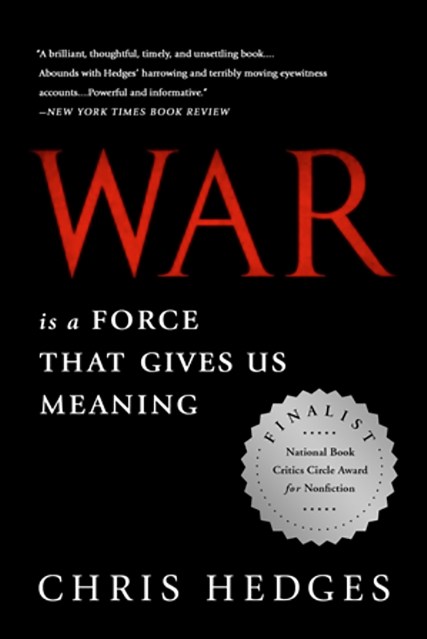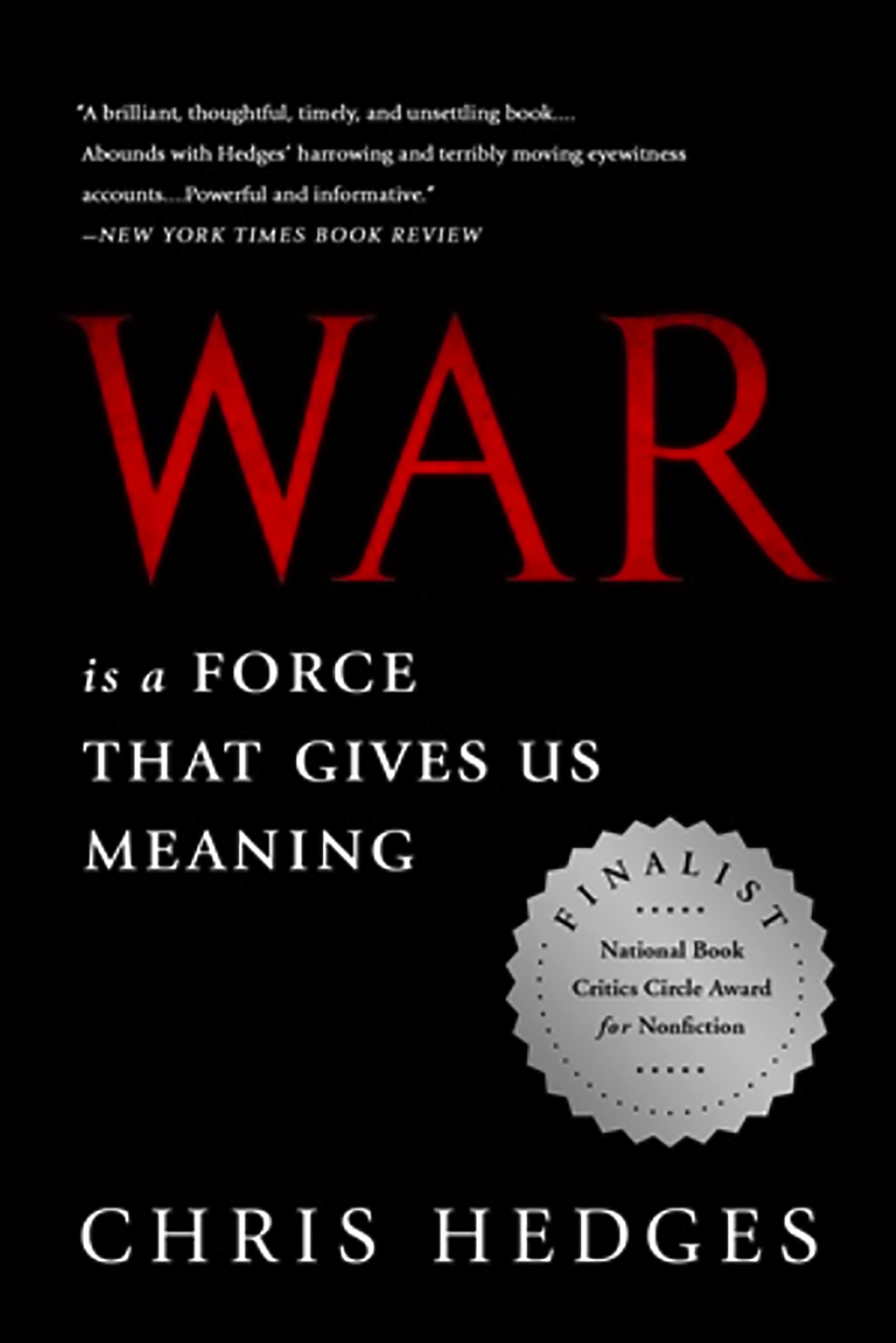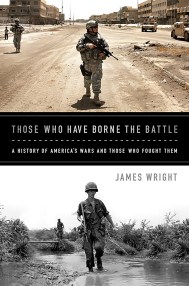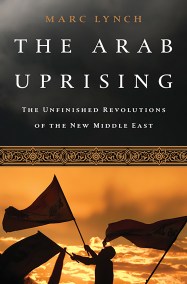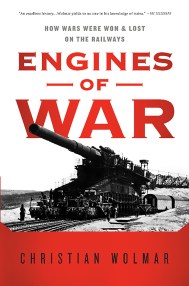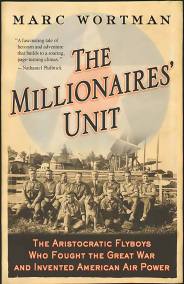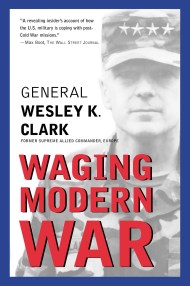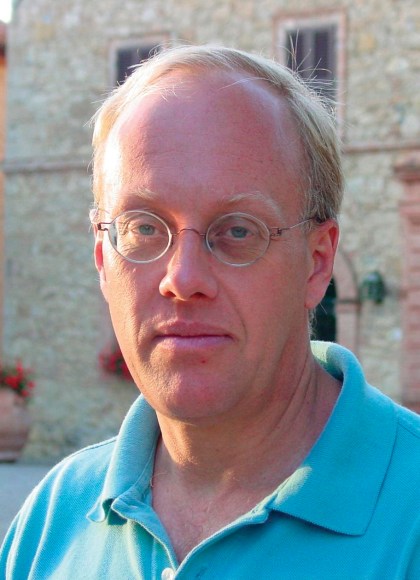By clicking “Accept,” you agree to the use of cookies and similar technologies on your device as set forth in our Cookie Policy and our Privacy Policy. Please note that certain cookies are essential for this website to function properly and do not require user consent to be deployed.
War Is a Force that Gives Us Meaning
Contributors
By Chris Hedges
Formats and Prices
- On Sale
- Apr 8, 2014
- Page Count
- 224 pages
- Publisher
- PublicAffairs
- ISBN-13
- 9781610395106
Price
$11.99Price
$15.99 CADFormat
Format:
- ebook $11.99 $15.99 CAD
- Trade Paperback $18.99 $24.99 CAD
This item is a preorder. Your payment method will be charged immediately, and the product is expected to ship on or around April 8, 2014. This date is subject to change due to shipping delays beyond our control.
Buy from Other Retailers:
Chris Hedges of The New York Times has seen war up close—in the Balkans, the Middle East, and Central America—and he has been troubled by what he has seen: friends, enemies, colleagues, and strangers intoxicated and even addicted to war's heady brew. In War is a Force That Gives Us Meaning, he tackles the ugly truths about humanity's love affair with war, offering a sophisticated, nuanced, intelligent meditation on the subject that is also gritty, powerful, and unforgettable.
Genre:
-
Finalist for the National Book Critics Circle Award for Nonfiction
-
A New York Times Notable Book
-
A Los Angeles Times Best Book of the Year
-
“A brilliant, thoughtful, timely, and unsettling book . . . Abounds with Hedges’ harrowing and terribly moving eyewitness accounts. . . . Powerful and informative.”The New York Times
-
“This book is an example of the best kind of war journalism: It is bitterly poetic and ruthlessly philosophical. It sends out a powerful message.”Los Angeles Times
-
“No one is in a better position than Hedges to pronounce on the revolting things war does to everyone caught up in it. . . . A confession of rare and frightening honesty.”Slate
-
“[A] powerful chronicle of modern war . . . A persuasive call for humility and realism in the pursuit of national goals by force of arms . . . Hedges’s timely book is a potent and eloquent warning.”The New York Times
-
“Insightful, provocative and elegantly written.”The Nation
-
“The book succeeds in its primary goal: It reminds us that war is dreadful beyond all imagining, and demolishes the myths we and our leaders embrace about war. . . . As the ‘war on terror’ continues . . . America would do well to heed Hedges.”Salon
-
“A loosely structured, highly illuminating anatomy of war. Throughout it, [Hedges] illustrates it with intensely honest, often beautifully written accounts of his experiences. . . . A pained, personal testament and a prophetic warning . . . Crucially important.”The New Leader
-
“An angry, articulate book . . . A compelling read and a valuable counterweight to the more antiseptic discussions common among strategic analysts.”Foreign Affairs
-
“What separates [Hedges’s] account . . . is that he has been there, repeatedly. Page after page, the author shows the good reporter’s gift for putting faces on the dead and the maimed who might otherwise remain undifferentiated ‘casualties.’”Dallas Morning News
-
“A searching indictment of international violence . . . What makes this more than just another treatise on the futility of war is the personal witness Hedges brings to the subject.”National Catholic Reporter
-
“I highly recommend Chris Hedges’ splendid little book. . . . His understanding is profound and was earned on the ground.”Molly Ivins, Fort Worth Star-Telegram
-
“Hedges knows the classics as well as he knows war firsthand. And while one may disagree with him along the way, his basic message is irrefutable.”Robert D. Kaplan, New York Times–bestselling author of The Revenge of Geography
-
“A profound meditation on the dangers of mindless jingoism and patriotic overkill which too often constitute policy in the Modern World. Written with extreme thoughtfulness and grace.”Douglas Brinkley, New York Times–bestselling author of The Wilderness Warrior
-
“Moving . . . This should be required reading in the post-9/11 world.”Library Journal
Newsletter Signup
By clicking ‘Sign Up,’ I acknowledge that I have read and agree to Hachette Book Group’s Privacy Policy and Terms of Use
